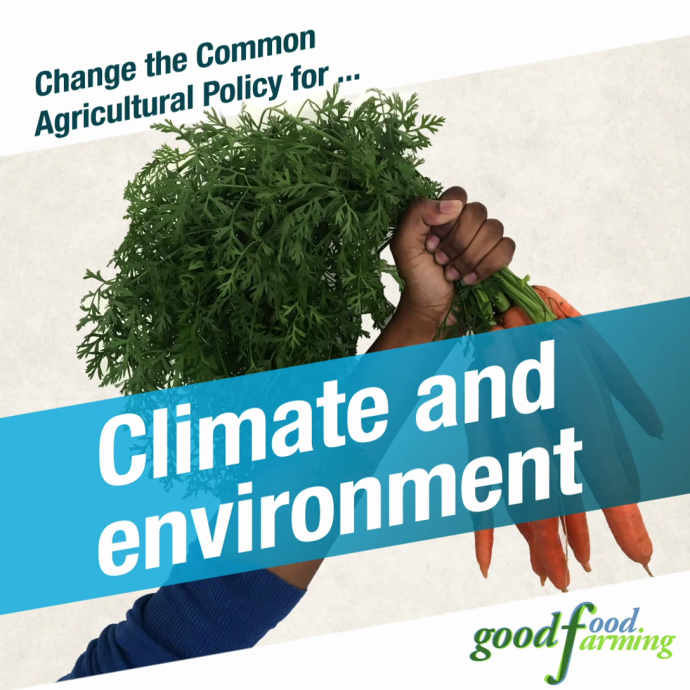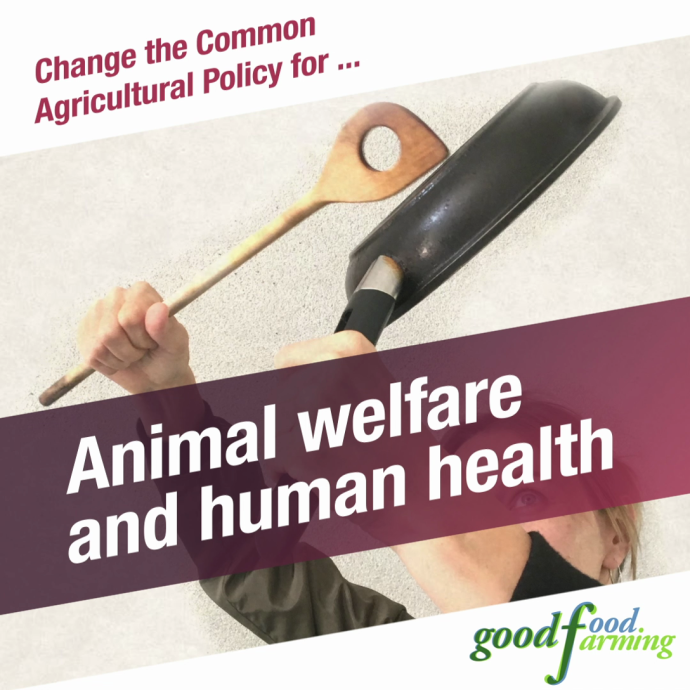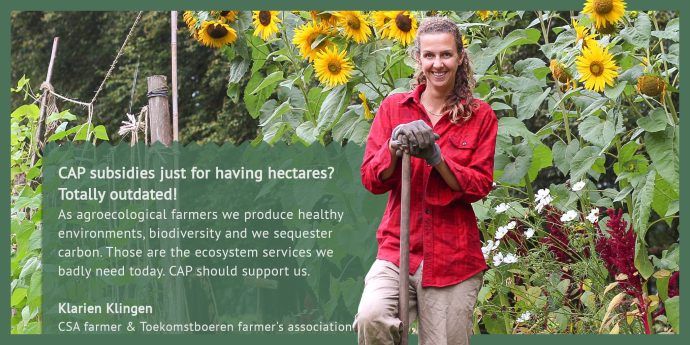The EU Common Agricultural Policy


On the CAP
From the olive groves of Greece to the dairy farms of the Netherlands, from the vineyards of Italy to the barley fields in Estonia: agriculture covers 175 million hectares across the European Union. Like no other legislation, the EU’s Common Agricultural Policy (CAP) shaped those rural landscapes and realities of farmers over the last 60 years. Since its publication in 1962, the CAP served as the EU´s instrument for agricultural subsidies and support. At that time, it aimed at developing agricultural production to feed the European people after the end of the Second World War, a goal it quickly achieved. Since then, the CAP has been reformed multiple times, usually in a 5-year interval.
The CAP is the largest EU policy, amounting to roughly 1/3 of the EU’s entire budget. In the current 2021-27 period, €387 billion are attributed to CAP funding. The way in which this money is spent – the incentives it creates and the production it supports – has a big impact on future food systems within the EU and beyond.
What is going wrong
The last reform of the CAP has failed to deliver a policy that is able to solve the multiple crises of our food system. As highlighted by various stakeholder groups including small-scale farmers, climate activists and consumers, the current CAP perpetuates ecologically and socially damaging practices.
The policy, in its current form, incentivizes intensive agriculture, promotes cutthroat competition, and encourages farm expansion. The CAP’s predominant subsidy mechanism grants hectare-based payments to farmers, based on the amount of land. This approach has rightly been criticized by civil society groups for decades, as it drives small farmers out of business and neglects environmental protection and biodiversity conservation. The last reform did not effectively redirect spending toward agroecological approaches, leaving the sector vulnerable and lacking resilience.
What needs to change
The reform process of the next CAP (2027 – 2031) is about to start and will be one of the biggest responsibilities of the new EU government after the parliament elections in June 2024. The next CAP needs to undergo a major overhaul to regain legitimacy as a public budget. Therefore, it is essential to shift from blind financial support to a ‘public money for public goods’ approach. This involves abandoning uncoupled subsidies and integrating the CAP into a broader strategy for sustainable and fair agri-food systems. The future CAP must address ecological, social, and economic challenges, focusing on environmental protection, climate crisis mitigation, and supporting farmers in transitioning to ecologically sustainable practices. As Good Food Good Farming, we will campaign for a CAP that commits to food sovereignty, environmental protection, climate action, biodiversity restoration and farmers´ livelihoods!

Together with our partners across Europe, Good Food Good Farming campaigns for a CAP post-27 that:
- Invests fully in the transition to agroecology
- Ends untargeted and harmful subsidies
- Remunerates farmers for well-defined services (environment, climate, nature, animal welfare)
- Supports young farmers through a concept-based, non-area-related start-up premium
- Shifts from coping to preventing risks
- Favours decentralized artisanal food processing and regional value chains
- Diversifies the farming sector to ensure resilience to climate change and economic shocks
The post 27 CAP Timeline
Feb 2024 - Annual Review Meeting
between Commission and Member States
Feb 2024
May 2024 - Public Consultation
on CAP post 2027
May 2024
Jun 2024 - EU Elections
Following the elections of the new EU Parliament, Parliament votes to elect the new head of the European Commission, which is the EU’s executive body, and to approve the full team of commissioners.
Jun 2024
Jan 2025 - Discussions on CAP Strategic Plans
EU ministers discuss implementation and progress of CAP Strategic Plans.
Jan 2025
Jul 2025 - Multiannual Financial Framework
By the 1st of July 2025, the Commission must propose a text on the MFF (the proposal on the CAP will come just after).
Jul 2025
Jul 2025 - Regulatory Proposal
The Commission will publish a regulatory proposal for next CAP post 2027
Jul 2025
Jan 2027 - Trilogues
Trilogue negotiations (the European Commission, the European Parliament and the European Council) on the CAP’s reform.
Jan 2027
Jan 2028 - Environmental Assessment
New regulations CAP post 2027 approved. Ex ante evaluation and Strategic Environmental Assessment of the CAP Strategic Plans.
Jan 2028
Jan 2029 - CAP Strategic Plans
Approval of the national CAP Strategic Plans by the Commission. Development of national regulations (cross-compliance, Plan interventions and payment entitlements).
Jan 2029
Farmers' voices
Across Europe, farmers demand change in agriculture policies. In our “Growing a better future” series, we highlight their positions and opinions on current EU policies like the CAP.
